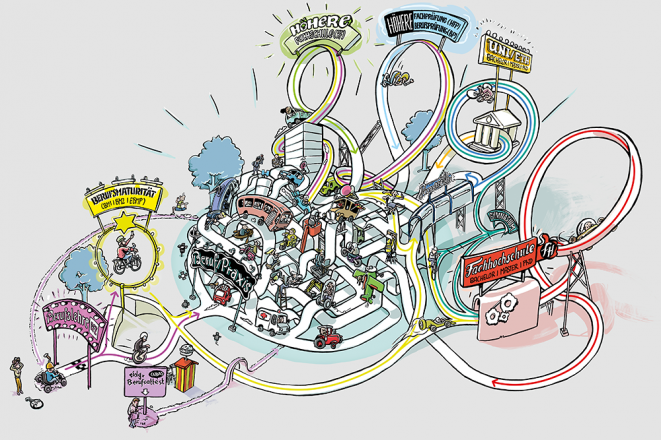The illustrator, Marian Blaser, has followed several training courses. Today, he works as a graphic designer and has depicted the Swiss educational landscape for UAS SWITZERLAND: Different, constantly surprising and always open to new ideas. Entirely in line with the motto: «Climb aboard, get ahead». This applies both for training and continuing education (see also «Useful information»). Here, we will present the Swiss education system. A profession and experience are always at the heart of the system. (Almost) no path can avoid this. You are sure to find the different approaches very quickly.


